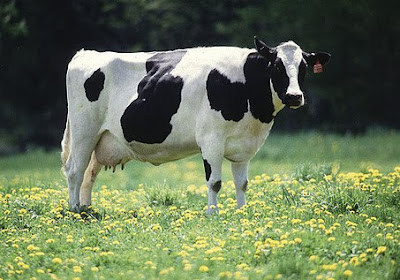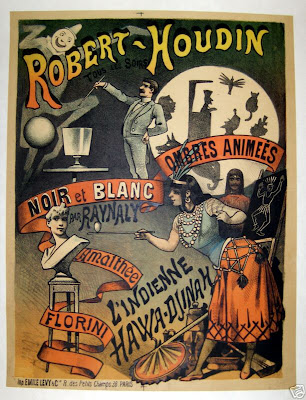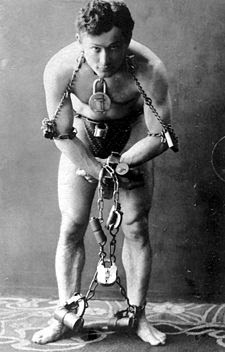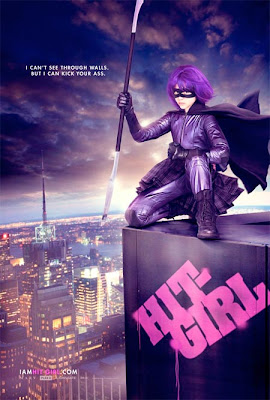BIG MONEY WEEK (SCRIPT 3)
Genre: Political Comedy/Satire
Premise: You wouldn’t believe me if I told you.
About: This script sold for 2 million dollars in 1990. Adjusted for inflation that would be 3.3 million today. One of the most famous (infamous) spec scripts in history. Why? The premise of course. For those not in the know, Joe Eszterhas, who wrote Basic Instinct, is the most successful screenwriter in history. There was a time when any piece of paper that even got close to his typewriter would sell for a cool million. He sold Basic Instinct for 3 million, Jade for 2.5 million, Showgirls for 2 million, Reliable Sources (unproduced) for 2 million, Male Pattern Baldness (unproduced) for 2 million. And that’s not including the ridiculous amounts of money he got paid for assignment work.
Writer: Joe Eszterhas
Details: 125 pages (April 1, 1990)
There’s a telling clue that you’re in for a strange ride when you open Sacred Cows. The date on the title page reads “April’s Fool, 1990.” I toiled over this strange detail for hours. Was this merely a fancy way of writing down April 1st? Or did Joe Eszterhas fool Hollywood into one of the biggest April Fool’s pranks in history? Or is the April Fool’s prank on us, years later, who’ve been told this screenplay actually sold for 2 million dollars? I mean, it can’t really have been sold for 2 million dollars, right? Not with this premise. There’s no way.
Sacred Cows is about a presidential election for the ages. Jim Taylor, a sort of young sleazy Republican, pushes the “us” campaign. There are many countries struggling across the world. But Taylor’s tired of the way the U.S. throws money at them. What about our country? Why aren’t we investing these dollars in the good ole U. S. of A? On the flip side is Democrat incumbent Sam Parr, 64, an old codger who’s obsessed with India for some reason. The people there are poor. Their economy is non-existent. India needs help. And it’s the United States who can give it to them.

On the outside, Parr embodies the selfless big-hearted moral human being we all aspire to be. But Sam’s got some demons mixed up with all those organs inside his body, namely that he’s obsessed with fucking women. He's been doing it ever since he got in this whole political game, and his his woman du jour is a big name foxy reporter who - surprise surprise - will do anything for a story.
A day before the first official debate, Taylor’s team sends Parr’s team a message. They wanna talk. It’s important. So Taylor and Parr meet in a dark room minutes before the debate, and Taylor tells him he wants him to drop out of the race. If he doesn’t, he’ll release to the world Parr's giant secret. We glean from Parr’s expression that whatever this doozy is, it’s big. The kind of thing that makes fucking a network reporter look like a teleprompter mishap.
The next day Parr’s team receives photographic evidence of this secret: Parr, in a barn, FUCKING A COW. Yes, you read that right. Parr is a cow-fucker. Well, he’s not a serial cow fucker. He used to fuck cows as a boy but he hasn’t fucked a cow in over 50 years. Until now. It just so happened that on a recent trip to his childhood home, he got a little nostalgic and…well…decided to give it to Bessie.

Politics is all about spinning. It’s one of the first things you learn when you run for office. But how in the hell do you spin fucking a cow? Parr’s cabinet improvises, doing the best they can with what they've got. Maybe they can spin it as a calculated move. The Muslims hate us, are always committing acts of terrorism against us. By fucking a cow, we piss off the Hindus (who hold cows sacred), and since Muslims hate Hindus, by association the Muslims will now love us. Terrorism over.
Which is fine. But Parr is horrified by what he's done to the carefully crafted relations he’s built up with the Hindus (remember, that was his whole campaign). The Hindus are, understandably, outraged. You don't exactly break out the champagne when the man in the most powerful position in the world literally FUCKS the animal you hold most sacred. These things don’t go over well. Or so I’ve heard.
No time to worry about that though because a National Enquirer like paper called “The Snitch,” picks up the story and releases a photo of Parr fucking the cow. Luckily it’s dark and grainy and because it’s The Snitch, there’s reason to doubt its authenticity. But it’s just real-looking enough to get the public stirring. Could it really be true? Where’s the beef? It’s in the cow.

In the meantime, his wife, his son, his daughter, and his mistress are all horrified by the revelation. Each feels that their name has been shamed and that they’ll be laughing stocks for the rest of their lives. That is IF the picture is real – which is still a matter of debate. During this time, all the major papers try to decide what to do with the story. Do they really run a headline painting their president as a cow-fucker?
His wife is so devastated that she runs off. Parr is concerned enough that he jumps in a gardener’s truck and chases after her. The Chief Of Staff as well as the rest of the White House is horrified to learn that they have no idea where the President Of The United States is. An already cataclysmic situation has gone nuclear.
The story kinda shifts gears and gets into Parr and his wife’s relationship. They’ve had an understanding throughout their marriage that Parr is going to chase younger tail (oops, bad choice of words) but he will always come back to her. The arrangement has worked until now but I suppose there’s an unwritten rule that when you fuck a cow, all bets are off. His wife doesn’t know if she can get over this one.

Naturally, Parr’s 28 point lead plummets and it becomes abundantly clear he’s got no shot at re-election. The last thing he can do is fly to India and try to repair his relationship with the Hindus. American flag-burning demonstrations have over-taken the country and the resulting violence has led to hundreds of deaths. The president, who up to this point has not given a definitive answer on whether he did or did not fuck that cow, goes to the heart of Calcutta where he gives an internationally televised speech, admitting his crime, and apologizing for it. India is thankful. They accept his apology, and of course, the heartfelt speech ends up swaying public opinion back in America, and helping Parr win the election at the last second.
Ummm…
Hmmm…
Did I really read what I think I just read? Did this really sell for 2 million dollars? I don’t know where to start here. On the one hand, you can say Sacred Cows represents just how insane the spec market was in the 90s. On the other, it’s a lesson that when you get hot as a writer, you can put just about anything down on paper and the powers that be will beg you for it.
Was the script any good? I mean, I guess it was. I admit that there’s a smooth flow to Esztheras’ writing, like taking one continuous gulp of Guiness while floating in a bubble bath. It’s a 125 page behemoth but it reads 35 pages lighter, no doubt in part to Esztheras hitting the gas whenever he gets into dialogue scenes, refusing to weigh them down with large chunks of supplementary action. He allows you to work out the visuals yourself and that’s fine by me.
Another thing I like about Esztheras’ script is how well he hides the structure beneath his story. This isn’t as plot heavy as say, Back To The Future, but there’s definitely some plot here, and I marveled at how little I noticed the act breaks or the story beats. They’re definitely there, but as I was reading them I didn’t notice, which reminded me a lot of a similar titan’s script, Sorkin’s “The Social Network.” You’re wholly unaware of the writer trying to manipulate you, and in my eyes that’s the last piece, after figuring out how to structure a script and craft great characters, to becoming a great writer.
But in the end it’s all just so bizarre. This script. This story. I do feel like the butt of an April Fools’ joke and I’m still not completely convinced that this sale actually happened. I can see it having been announced in Variety (“Esztheras sells script about President who fucks cow for 2 million!”) on April 1st, only to be recanted the next day as a prank. Yet throughout the years, people forgot about the prank part, and it was passed on as a real event. I don’t know. For those of you around back then, did this really happen?
I’m torn about whether to recommend this because while the writing is something to admire, the idea is just too out there. I guess, as a curiosity, it’s worth checking out.
P.S. How great would this script have been had it come out after Bill Clinton’s presidency? A script about a president who has sex with a cow months after Clinton’s affair with Monica Lewinsky? Ahhh…what could’ve been.
[ ] What the hell did I just read?
[ ] wasn’t for me
[x] worth the read
[ ] impressive
[ ] genius
What I learned: Esztheras was known throughout Hollywood as a powder keg. He famously clashed with a studio head about recommended changes to his script. And when I say clashed, I mean he PHYSICALLY FOUGHT him. Esztheras’ philosophy was simple. I don’t tell you how to do your job. You don’t tell me how to do mine. He was the one writer who didn’t act as a doormat for the industry, but rather swept people underneath his own. Now as writers, we’re told to shut up and do as told because we’re a dime a dozen. We can be fired and replaced in less time than it takes to say ‘rewrite.’ Yet here we have the most successful screenwriter in history taking the exact opposite approach. Esztheras went fucking bananas when he found out Verhoven wanted to take out all the sex in Basic Instinct. He fought like a bull in heat and eventually Verhoven relented, keeping the sex in, and as a result made one of the best movies of the 90s. So should you stand up for what you believe in or suck it up and do as told? The overwhelming majority of writers recommend that you shut up and do what they tell you to. Yet the most successful screenwriter in history did the exact opposite. So which is right? I guess you have to decide whether you’re as irreplaceable as Joe Esztheras. If you believe you are, then fight on.












